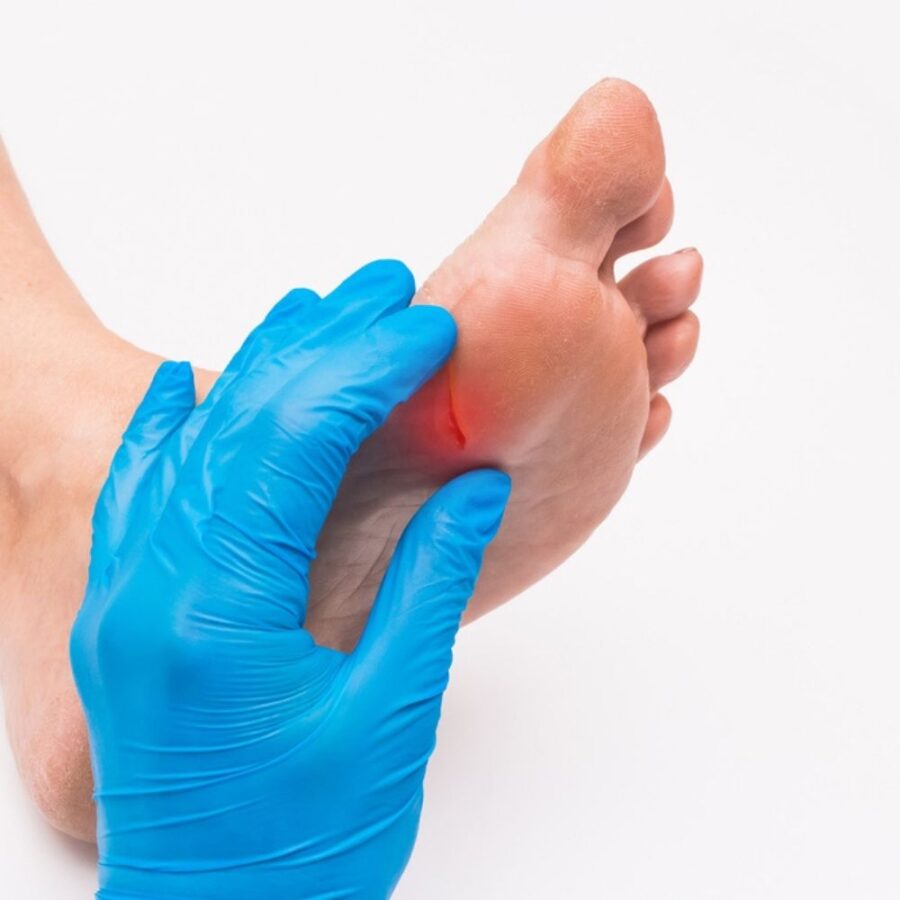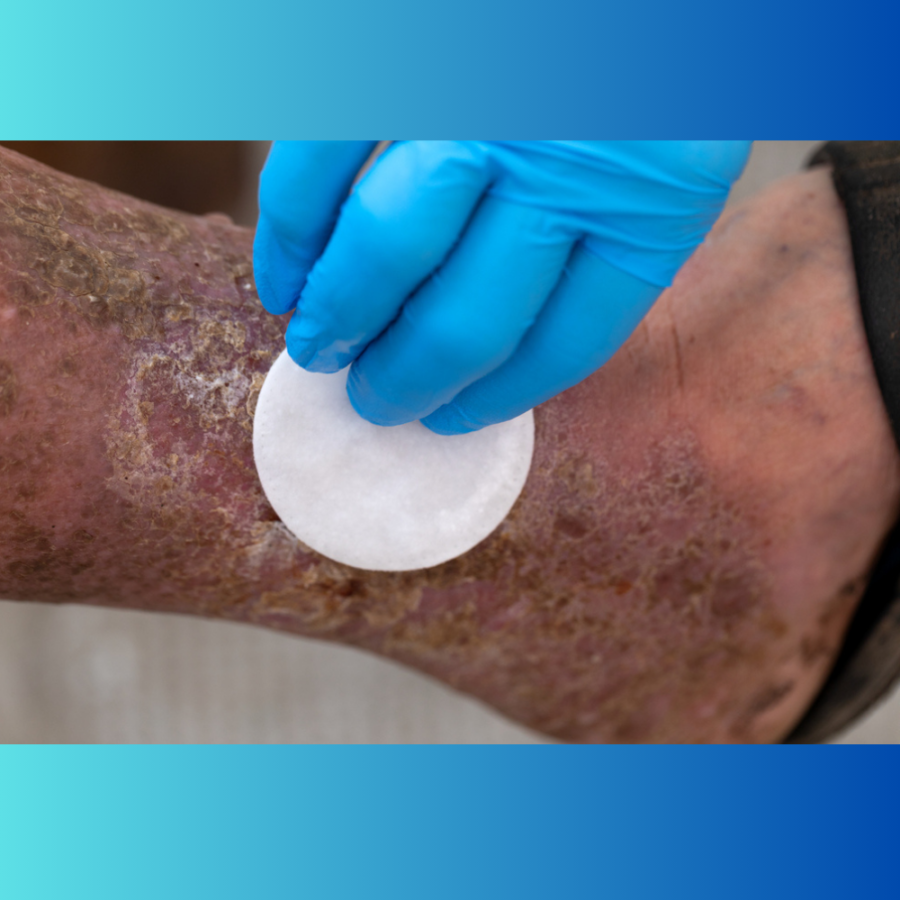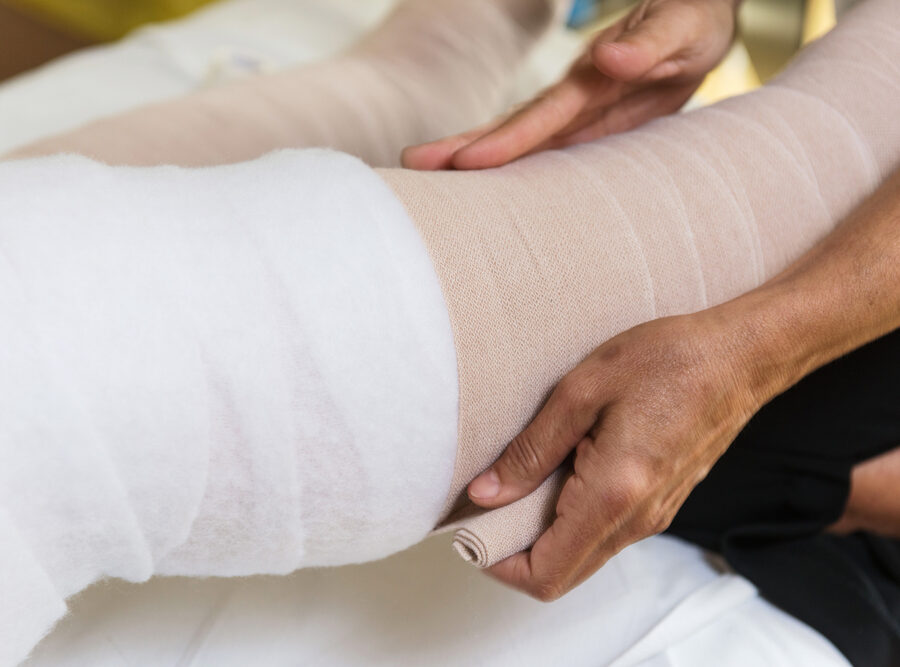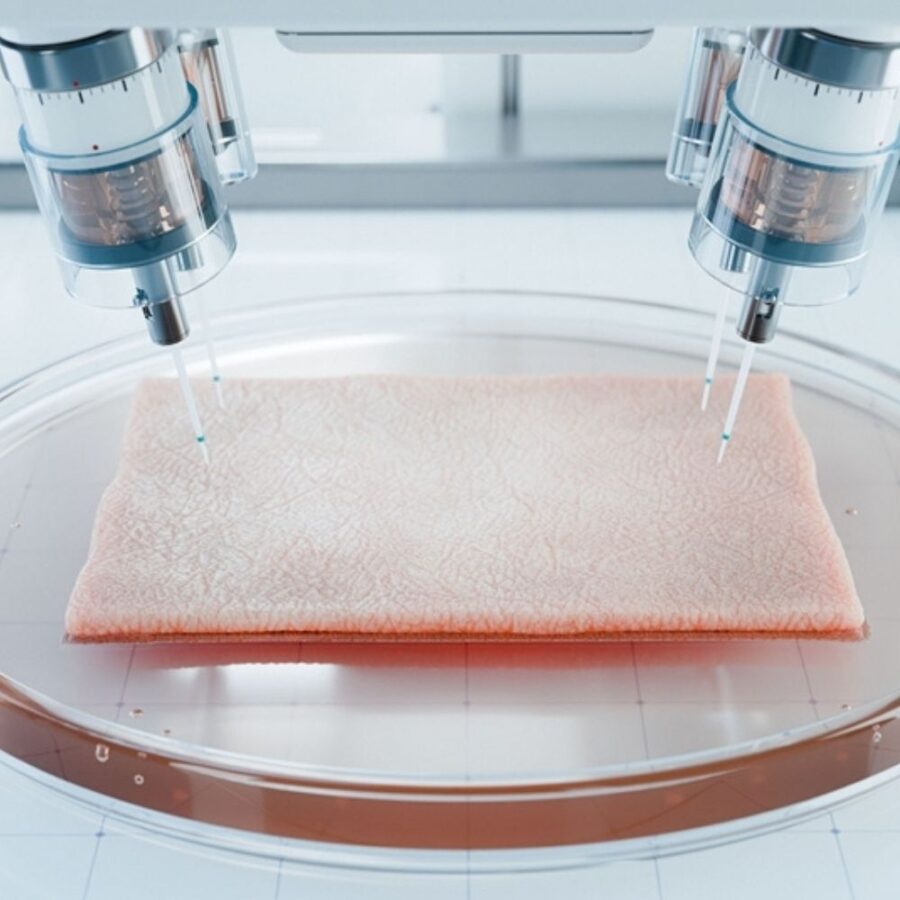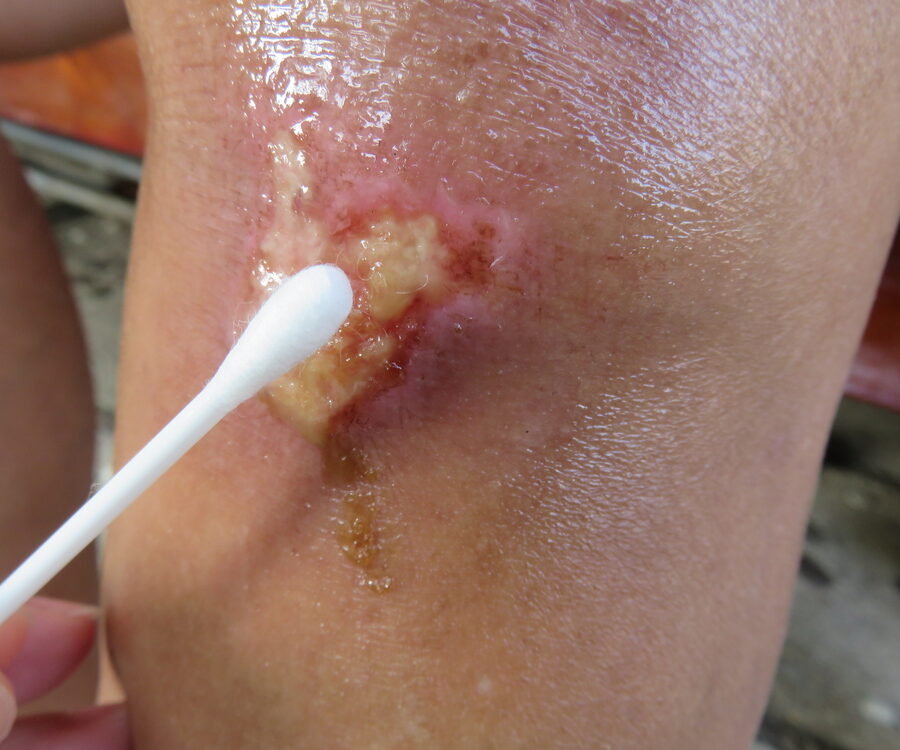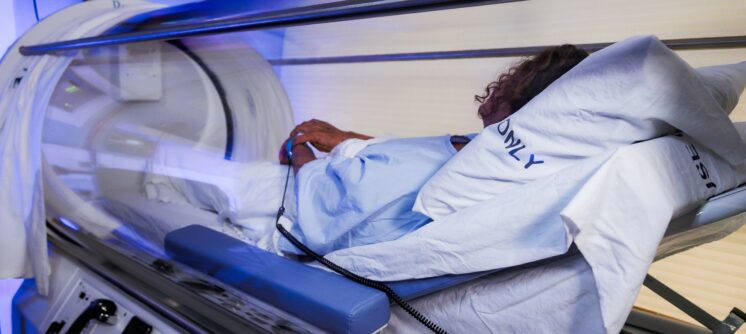Our Locations
Wound Care St Augustine
150 Southpark Blvd, Ste 102
St. Augustine, FL 32086
Wound Care Palatka
524 Zeagler Drive
Palatka, FL 32177
Appointments
Call us 24/7 to schedule an appointment.
Dial 911 for Emergencies.

About Wound Care St. Augustine
With over 25 years of combined wound care experience, our team at Wound Care St. Augustine is committed to delivering exceptional results through personalized, compassionate treatment. We understand how chronic wounds can affect your quality of life — which is why we focus on both wound healing and whole-person care. Your beacon of hope.
Expert Medical Team
Our board-certified wound care specialists and experienced providers work together to deliver personalized, results-driven treatment for every patient.
Healing Technology
We utilize industry-leading wound care treatments like biologics, negative pressure therapy, hyperbaric oxygen therapy, and more to speed up recovery and enhance outcomes
Local, Convenient Care
Located in the heart of St. Augustine, Florida, our modern facility offers easy access, flexible scheduling, and a comfortable environment for your care.

Specialized Wound Care Services in St. Augustine, Florida
Our Practice Areas and Expertise
At our clinics in St. Augustine & Palatka, Florida, we provide advanced care for patients with diabetic foot ulcers, pressure sores, surgical wounds, and other hard-to-heal injuries. Our team uses hyperbaric oxygen therapy (HBOT) and personalized treatment plans to promote faster wound healing and reduce the risk of serious complications.
Wound Assessment
Wound Debridement

Hyperbaric Oxygen Therapy

Specialist Collaboration

Negative Pressure Therapy (Wound Vac)

Compression Therapy

Skin Substitutes

Infection Mitigation

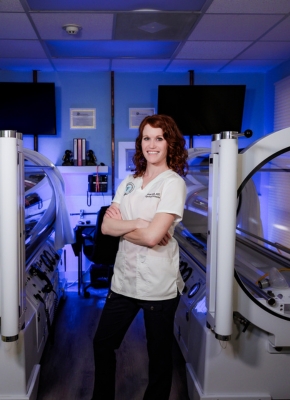
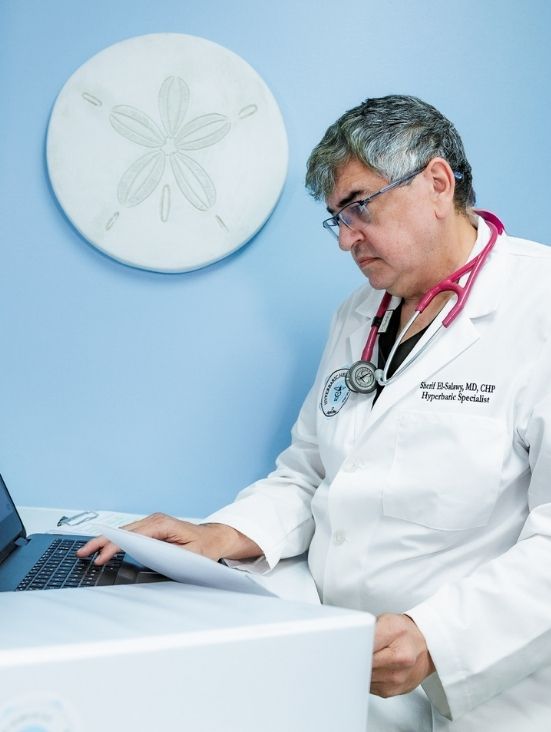

Welcome to Wound Care St Augustine
Building A Positive, Safe, Patient Focused Culture.
We’re here and ready to help — with advanced care, trusted experts, and a team that puts your health first.
Only Qualified Specialists
— with advanced care, trusted experts, and a team that puts your health first.
Latest Advancements

We’ll Help you Manage a Range of Conditions
Advanced Technology. Experienced Professionals. Proven Results.
At Wound Care St. Augustine, our industry-leading facilities are equipped with the latest advancements in wound care and hyperbaric oxygen therapy. From advanced treatment chambers to modern diagnostic tools, every detail is designed to support faster healing, patient safety, and optimal outcomes. Our clean, comfortable environment ensures you receive the highest standard of care in a setting built for recovery.
At Wound Care St. Augustine, we believe in full transparency when it comes to your care. Before any treatment begins, we’ll walk you through all available options, discuss insurance coverage, and explain any out-of-pocket costs. Our team is here to help you make confident, informed decisions — without the stress of unexpected fees.
At Wound Care St. Augustine, our highly qualified team is made up of board-certified physicians, advanced practice providers, certified hyperbaric specialists, and skilled support staff — all dedicated to delivering exceptional, patient-focused care. With decades of combined experience in wound healing, hyperbaric medicine, and geriatric care, our team brings unmatched expertise, compassion, and collaboration to every treatment plan.


We Work to Achieve Better Health Outcomes One Step at a Time
At our clinic in St. Augustine, Florida, we provide advanced care for patients with diabetic foot ulcers, pressure sores, surgical wounds, and other hard-to-heal injuries. Our team uses personalized treatment plans to promote faster wound healing and reduce the risk of serious complications


Initial Consultation


Treatment Planning


Active Wound Care


Recovery & Support
Take Care of your Health and that of your Family Today!

Hear What Our Patients Say About Wound Care St. Augustine
Real Stories. Real Healing.
Discover how our compassionate care and advanced treatments have helped patients throughout St. Augustine, Florida heal and reclaim their lives.
EXCELLENTTrustindex verifies that the original source of the review is Google. I can’t say enough good things about The Wound Care Center in St Augustine. Every one of the staff are super smart, kind, genuinely caring. Highly recommend them. You will be very pleased.Posted onTrustindex verifies that the original source of the review is Google. Wound care St. Augustine was terrific! I was in town for only 3 days and needed would care. I submitted a request on line on a Sunday and that evening got a reply that I could be seen the following day. The environment was relaxing and their attention to me was excellent. I left with a clear understanding of what I needed to do, a prescription on the way and a follow up text to check on me. I wish I received that same attention with my own primary care at home! They took my insurance, but even without using it, the cost was reasonable. Thank you Wound Care St. Augustine!Posted onTrustindex verifies that the original source of the review is Google. Love the staff, they new just what to do. They recommend an ointment that healed a stage 2 ulcer on my left foot in 4 days, I recommend them.Posted onTrustindex verifies that the original source of the review is Google. I have to say that Monica and Stephanie are so caring and extremely good at what they do. They have been taking such good care of me and I feel like they are Family! When I first started with my treatments, I was very nervous and worried….. they made me feel good and assured me that everything will be fine. I recommend Wound Care in Saint Augustine very much!!! They are the best!!Posted onTrustindex verifies that the original source of the review is Google. What an amazing place to bring to St Augustine. I was overwhelmed by how well I was treated and how the staff paid close attention to my special needs. The two ladies that assisted me , Monica and Stephanie, were essentially the best duo that I’ve ever encountered in all my years in North Florida. Very knowledgeable and comforting when it comes to professional treatment. I’m sure there may be other employees at this location besides Monica and Stephanie, but with assets like them, this company will definitely be in business for many years to come . Thank you again Wound Care of St Augustine. I will refer all of my ex-military friends that may need your services in the future,God bless 🇺🇸Posted onTrustindex verifies that the original source of the review is Google. Before coming to Wound Care St Augustine I did not realize how important a wound care specialist was to the efficient healing of a serious wound. The nurse practitioners at Wound Care knew exactly what to do at each stage of my wound’s progression. A truly scary wound improved daily while I watched in amazement at the different treatments that were done daily. I highly recommend this clinic.Posted onTrustindex verifies that the original source of the review is Google. I just finished my six weeks oxygen therapy. It was a wonderful experience. I wasn’t sure what to expect. I was anxious going in to the first session. Within minutes of going in to the chamber I knew everything was going to be good. I’m so relaxed when I’m in the there. Added bonus, I got to watch a Netflix series from beginning to end. Mitch and I share the OCD trait. The STAFF was awesome. Stefani, Monica, and Vanessa became my new best friends. They are professional, kind and easy talk to. We had many great laughs. I live in Palm Coast so it’s takes 40 minutes to and from. They gave me something to look forward to along with the treatment. The facility is immaculate. This is 100 percent the place to go for all your wound care concerns.
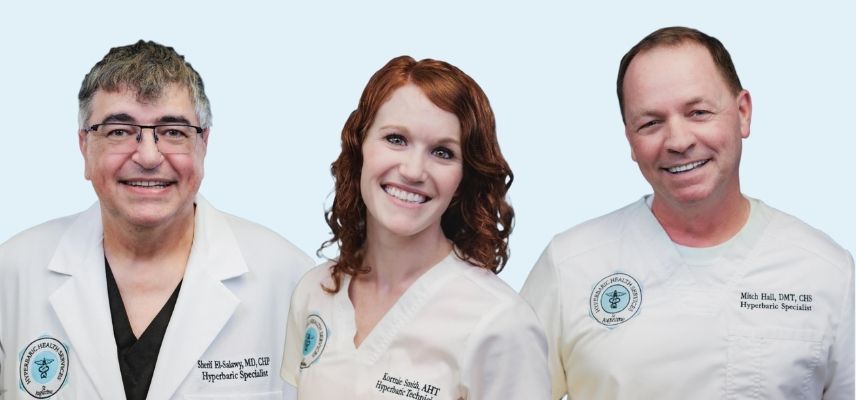
Meet Our Team
We treat all our patients in a unique way and we can provide you with treatment that has a personal approach. We have a professional-but-caring attitude and you can count on us to walk you through every step of the treatment.
Request an Appointment
Start Your Healing Journey Today
Whether you’re dealing with a chronic wound or exploring hyperbaric therapy, our team is here to help. Schedule a consultation and take the first step toward expert, compassionate care.
Explore Our Services
Advanced Wound Care & Hyperbaric Therapy That Works
From chronic wounds to diabetic ulcers and radiation injuries, we deliver evidence-based treatments tailored to your healing needs. Let our expert team guide your path to recovery.

Tips, Insights & Patient Education
Stay Informed. Heal Smarter.
Explore expert-written articles on wound prevention, advanced therapies, and tips for caring for chronic wounds at home — all from our team here in St. Augustine, Florida.
Walk-ins & Next Day Appointments Available
Wound Care St Augustine
Monday – Friday: 8:00 AM – 4:00 PM
Saturday – Sunday: Closed
Wound Care Palatka
Monday – Friday: 8:00 AM – 4:00 PM
Saturday – Sunday: Closed
Contact Us
Admin@WoundCareStAugustine.com
Call: (904) 342-5003
*After Hours Voicemail Monitoring with Short Response Time
Subscribe to Newsletter.
Stay Connected With Wound Care St. Augustine
Get the latest updates on wound care tips, new treatment options, and clinic news — delivered straight to your inbox.

